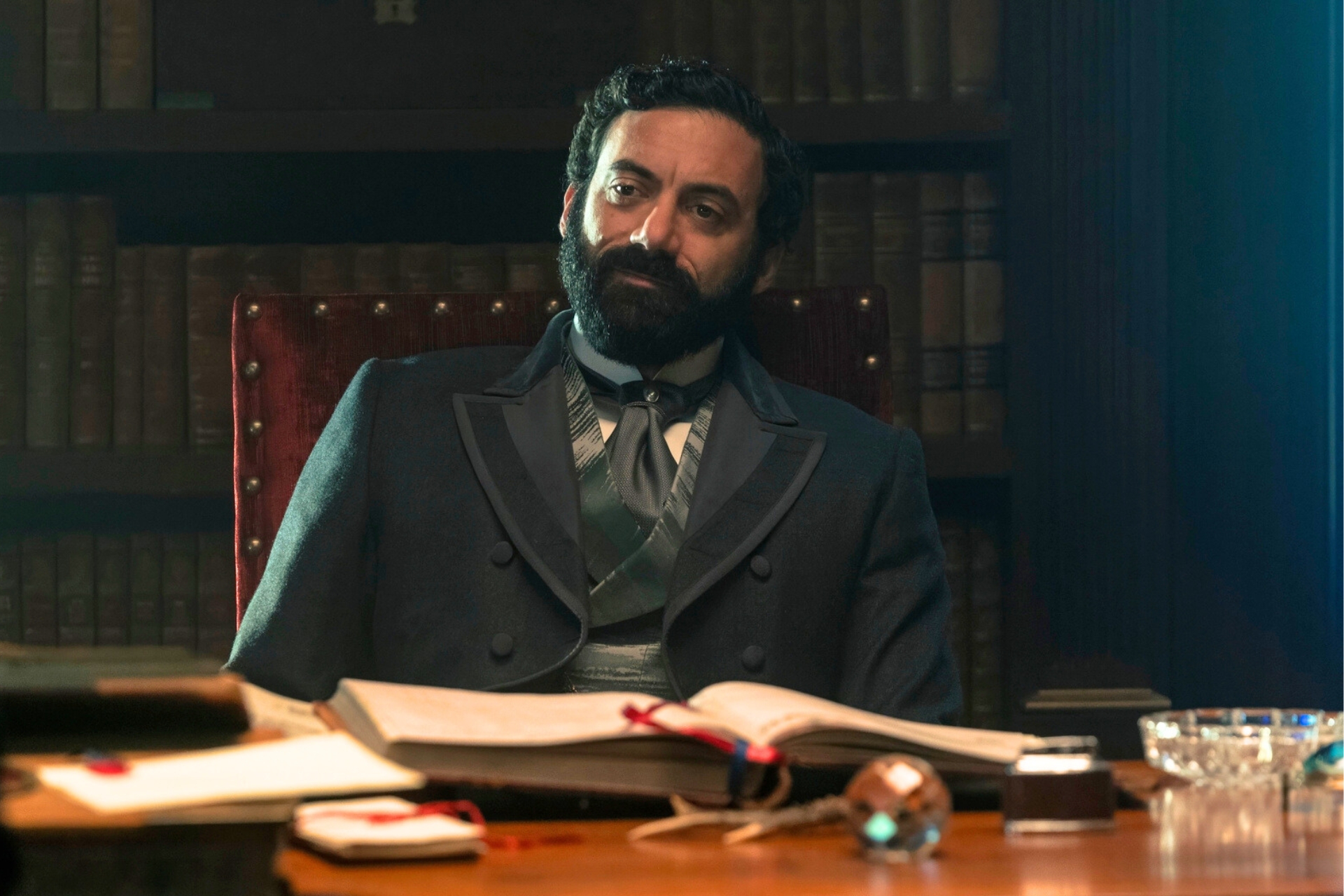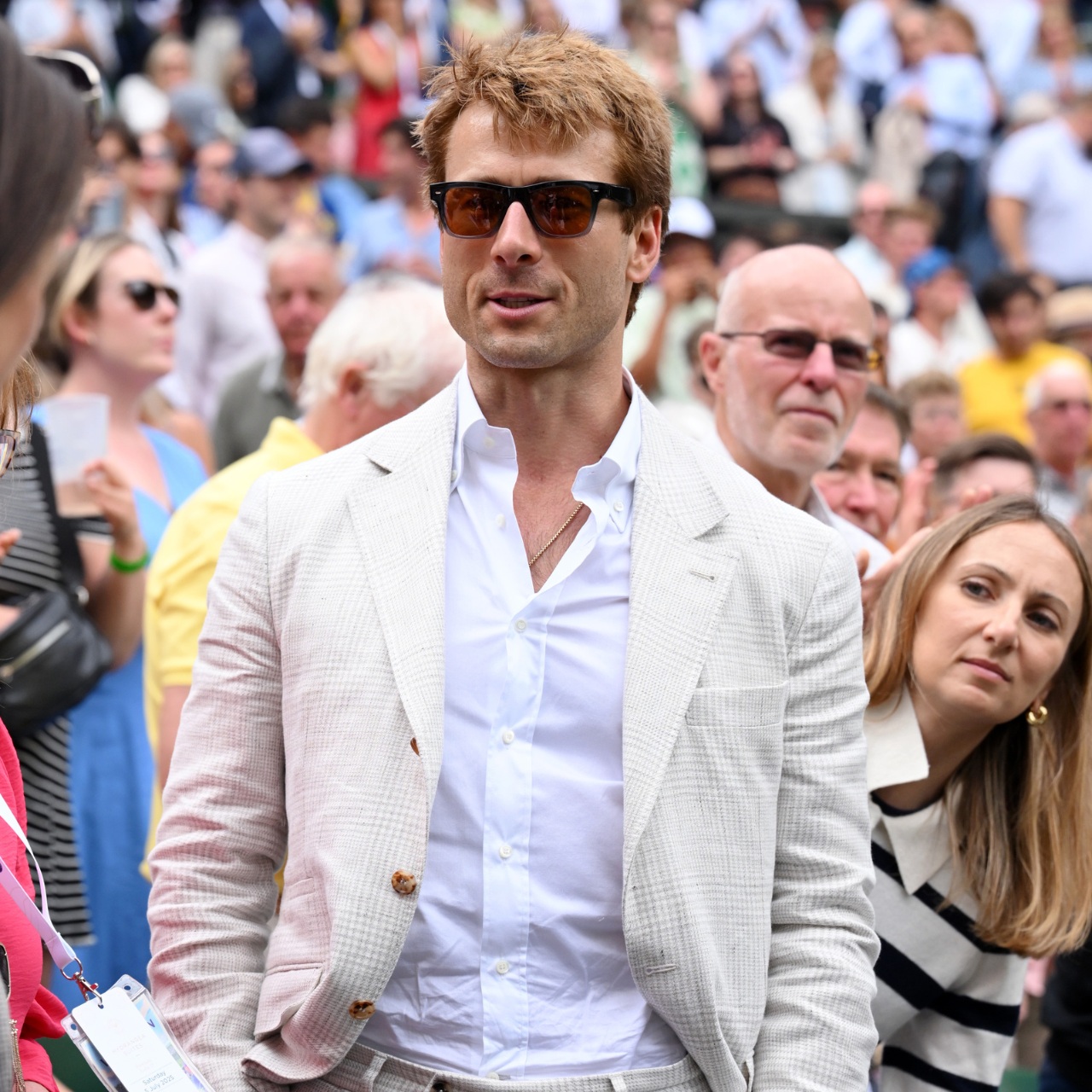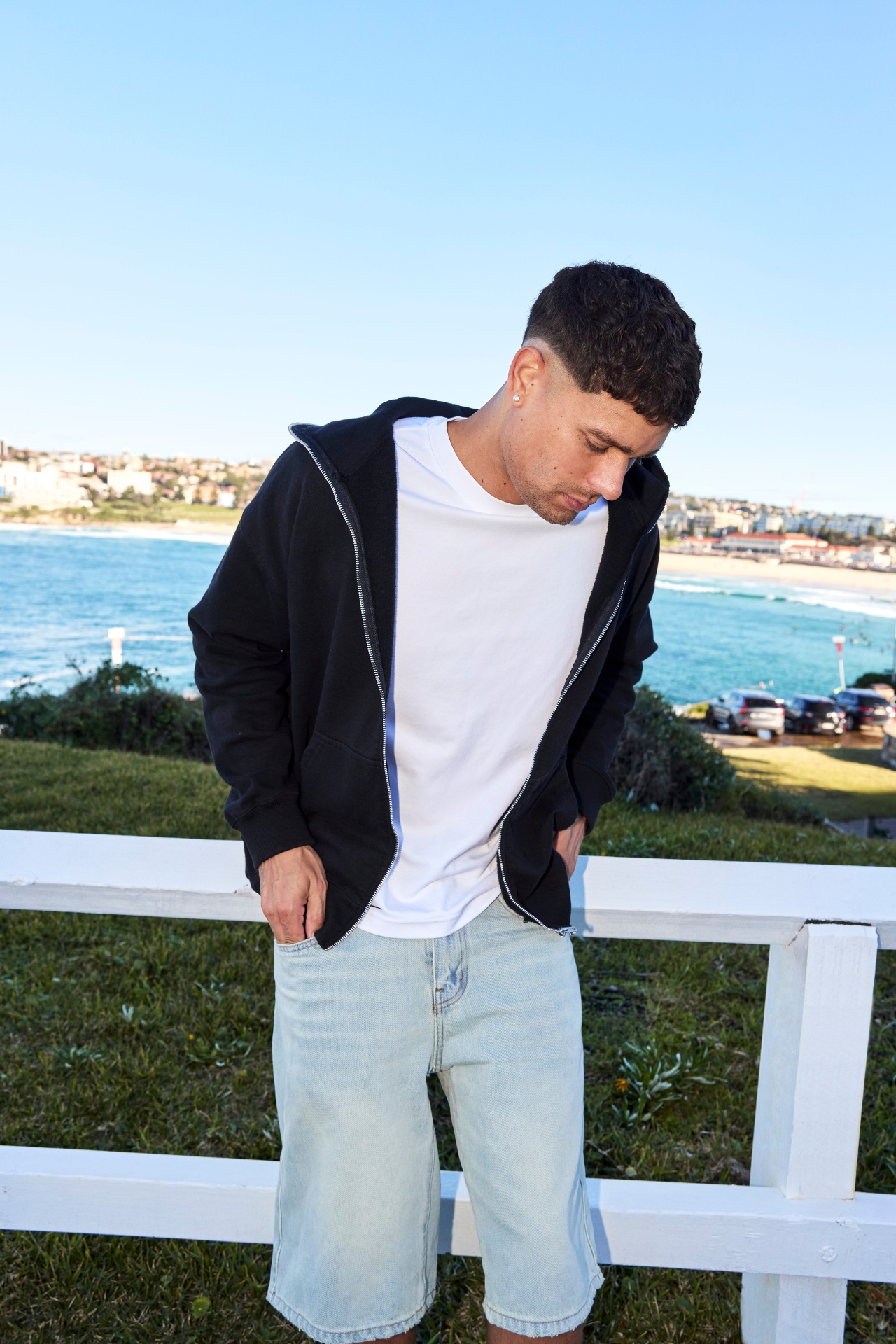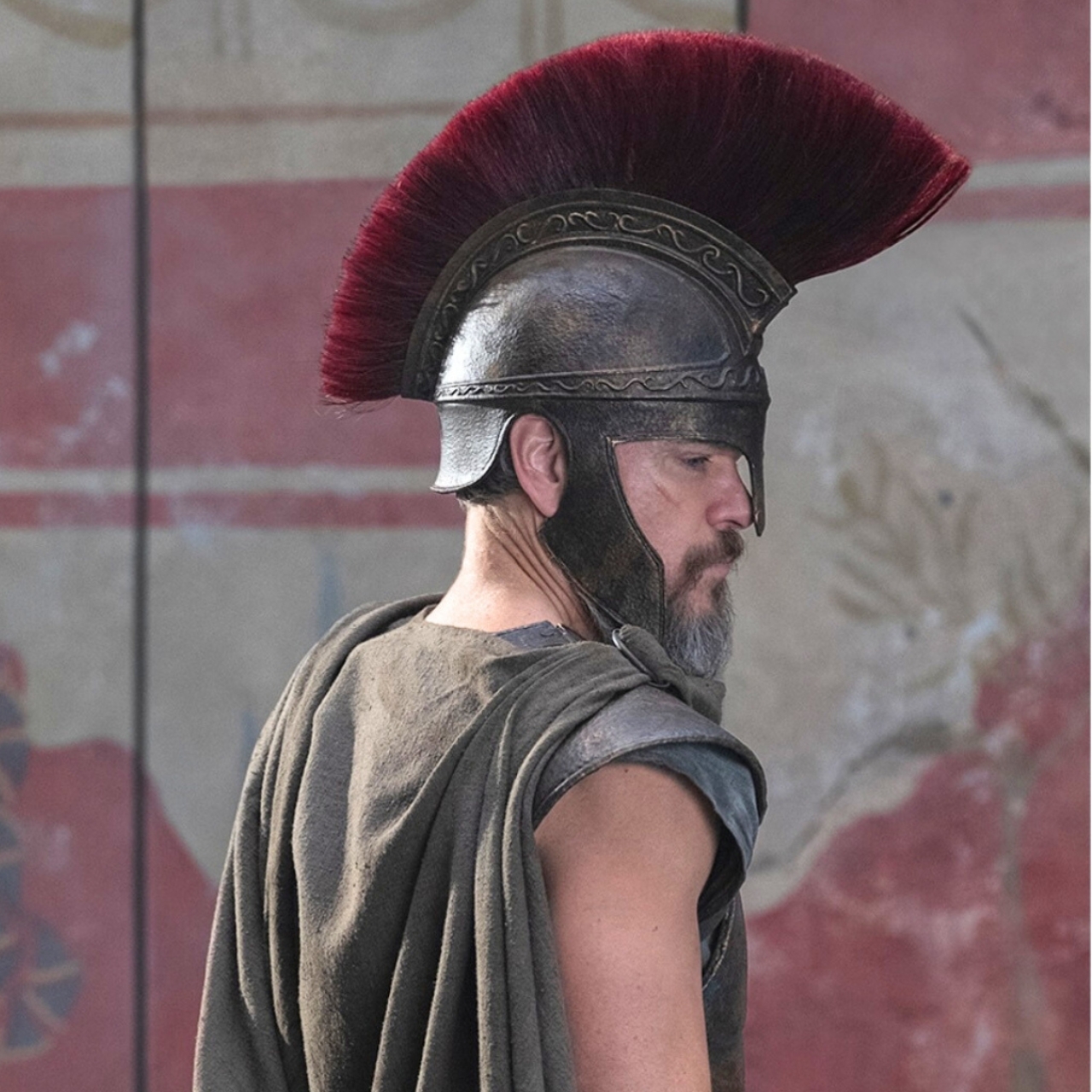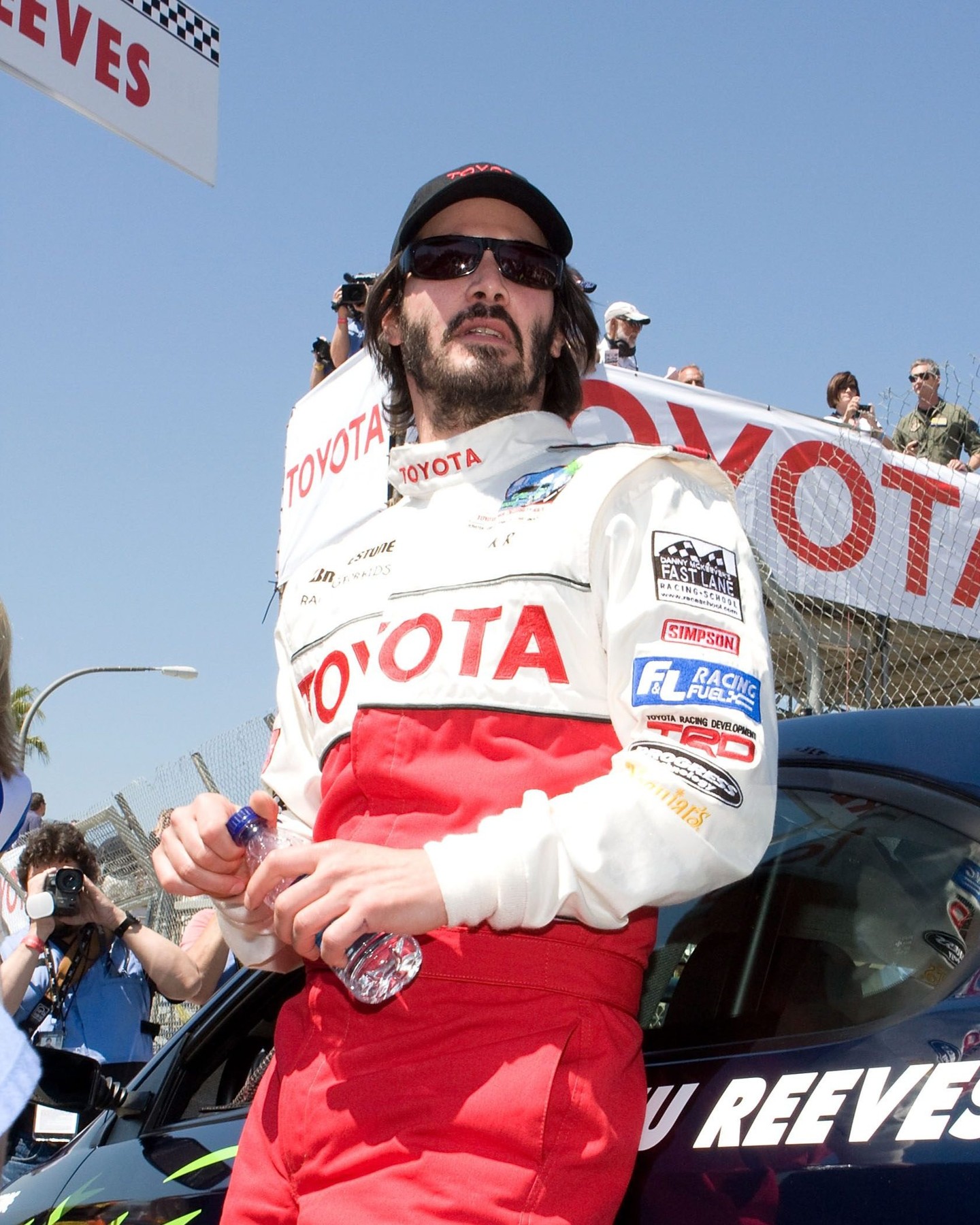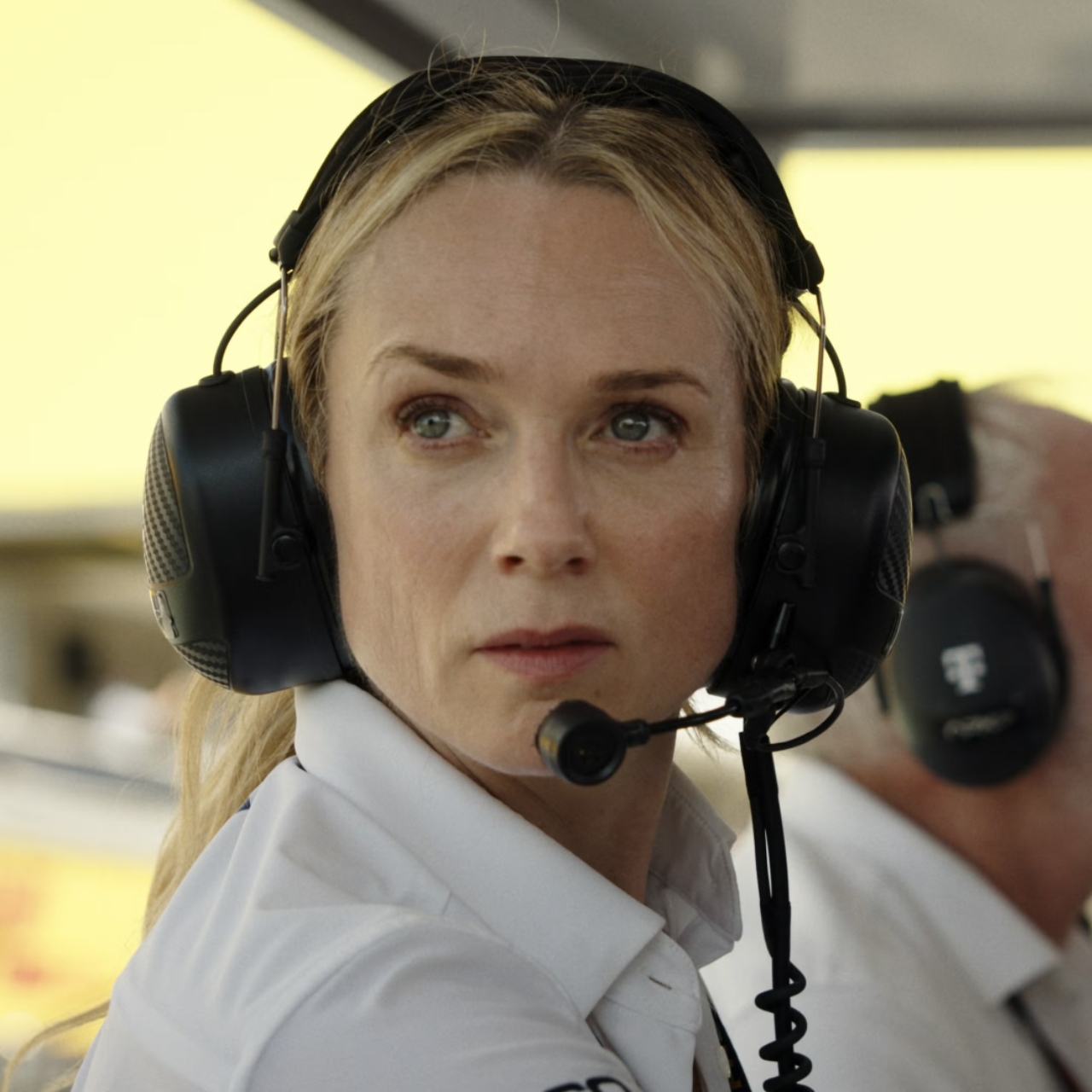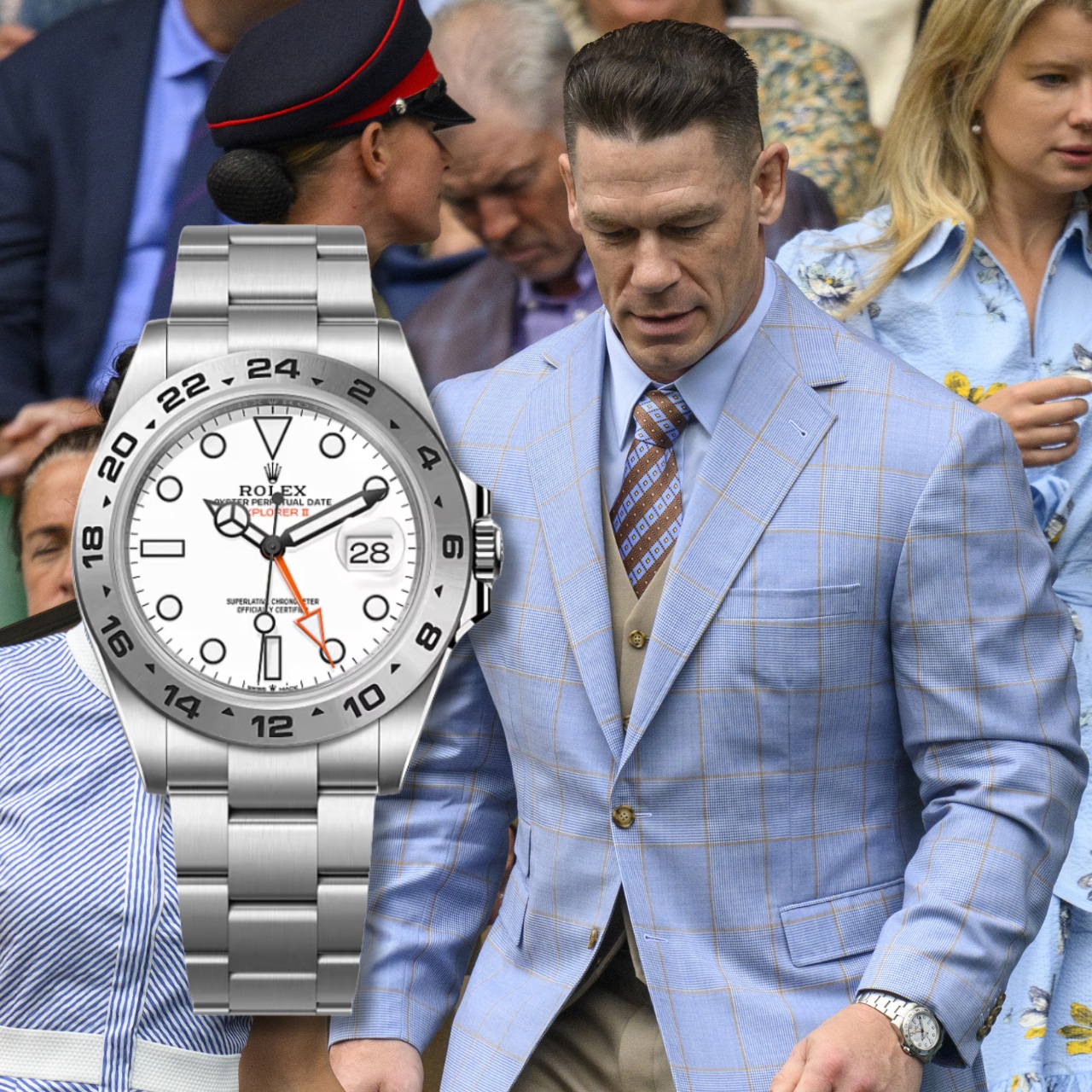Inside the pressure box: Mackenzie Arnold on what it takes to succeed in the toughest job in sport
The Matildas’ goalkeeper talks pressure, expectation and what went through her mind during that penalty shootout.
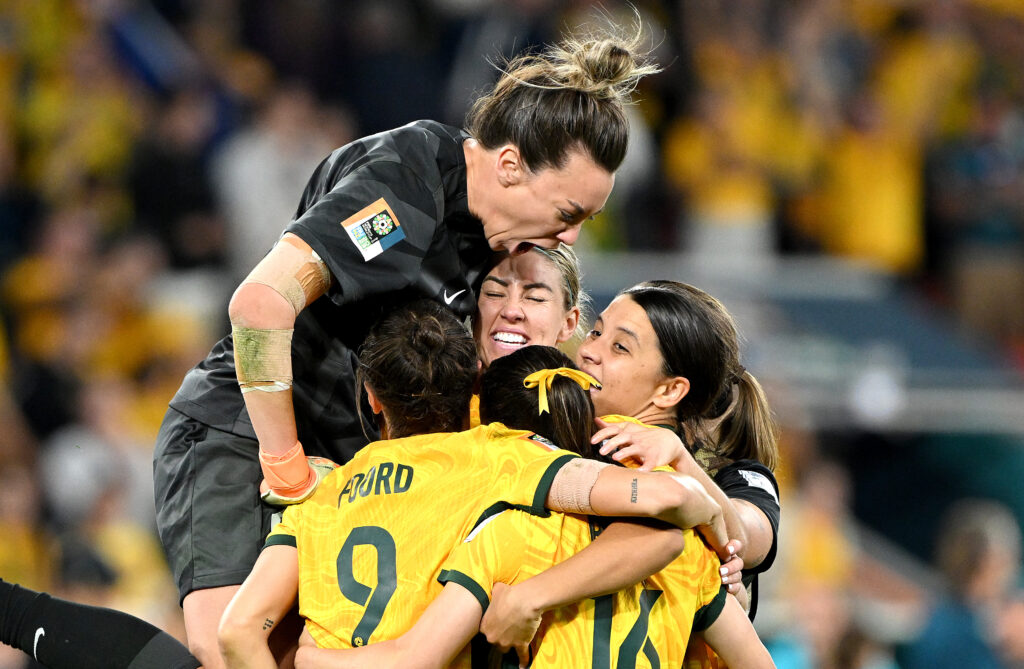
MACKENZIE ARNOLD HAD just missed the biggest penalty kick of her career and one of the most important in the history of Australian women’s football. As the Matildas’ goalkeeper, Arnold hadn’t expected to even be taking a penalty but as the shootout between Australia and France in the Women’s World Cup quarterfinal dragged on and on, she found herself not just having to save shots but take them.
“I was the fifth penalty taker, so I saved one and then I was like, ‘Oh god, now it’s my turn’,” says Arnold, who’s speaking to Esquire today from her apartment in London’s east. “I didn’t actually know that I was going to take one. It just turned out that way because of the subs we made. And I was like, ‘Wow, I could really win it here’.”
With the whole of Australia willing her on, Arnold sprayed her kick right and hit the post. It was a potentially heartbreaking miss, but when Arnold turned around to her Matildas teammates, she was met only with encouragement and support. And at that moment she felt emboldened to return to the line and complete the job for the team. “It would’ve been great to finish it, but I turned around and they were like, ‘It’s fine, it’s fine. We’re good’. And I just thought, ‘Okay, okay, it’s all good’. And I went back to what I had to do, which was my job. When you feel someone’s belief in you, it instils so much confidence in you.”
Arnold didn’t know it at the time but had she turned around a fraction earlier she might have witnessed her teammates’ initial, understandably disappointed reaction, which they, of course, hastily disguised. “Now I look at photos and I can see them all like, ‘Oh, my God’,” says Arnold, breaking into a laugh. “And it must’ve been before I turned around. As I turned around, they were like, ‘Yeah, we got it, it’s all good’. It’s funny how things work out. But I think after that I was just so determined to get the job done because if we would have lost after that, I wouldn’t have forgotten it for a very long time.”
Of course, Arnold would proceed to do her job, making another crucial save before Cortnee Vine went on to seal an iconic victory and send a nation into hysterics. The Matildas would subsequently lose to England in the semi-final and to Sweden in the third-place playoff, but by then they had already won the hearts of a nation.
A little over two weeks after the tournament, Arnold is still struggling to process what the team achieved and the extent to which they’ve changed the conversation around women’s sport. “I can’t even put it into words,” says the 29-year-old, who together with fellow Matildas, Caitlin Foord and Steph Catley, became an ambassador for Patrón Tequila’s Masters of Craft Ambassador series, prior to the tournament. “Even when people ask me now, ‘How was the World Cup?’ I’m like, ‘I can’t put it into words for you’. The way Australia came out to support us. It was insane.”
Arnold’s also having to get used to the new levels of attention and recognition she’s receiving. “The games were one thing, but even people being around our hotels, yelling out to us in the streets, it was just the craziest thing. That was never me two, three months ago. That’s cool in itself, but I still think I’m processing what we’ve actually done for women’s football in Australia, and women’s sport in general.”
That might take a while. But one thing you can process right now is that Arnold’s path to becoming a Matilda might not be one future generations of young girls follow. That’s because ‘professional footballer’ is something to which girls will be able to aspire from the moment they first start kicking a ball around. As Arnold’s story shows, it wasn’t always that way.
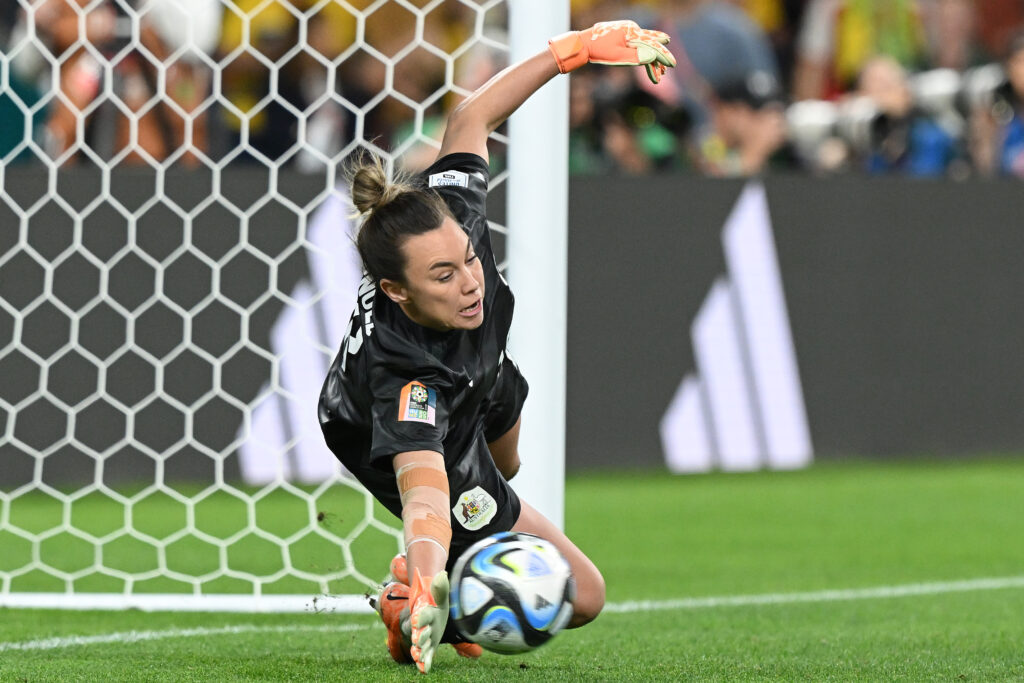
ARNOLD GREW UP on the Gold Coast in a rugby league family. As a kid, she wanted to follow her older brother into league but her mother wouldn’t allow it. Football was the next best thing, she says. “My brother played [football] when he was growing up, so I wanted to do everything he did,” she says matter-of-factly.
Arnold would rise through the ranks of Queensland junior competitions but at no point did she think playing football was something she could do for a living. “It was a lot later than it should have been,” she says of the moment she thought she might have a shot at a pro career. “It was just like you were having fun with your mates,” she says of her time as a junior. “There was never an inspiration for me to be like, ‘Oh, I can’t wait to be a part of that’. I remember watching the Matildas play at the World Cup in Germany and I still remember I was like, ‘Oh, that’s cool’. But it was never like a desire because they were never shown enough for us to want to be like them. I just never knew that that was a career path that could have been for me.”
Even when she was selected for an Australian Under 17s camp, Arnold still didn’t think it could lead anywhere. “It never hit me that this was the step to get to the Matildas,” she says. “It was almost like a weekend soccer camp that I was like, ‘Oh cool, I’m going away with my mates’.” Her relaxed attitude would see her fail to meet the standards the coaches at the camp expected, which resulted in her getting a kick up the backside when she returned to her club team.
“I just sort of took it as a bit of a kick around and I got back to QAS (Queensland Academy of Sport), and my coach was like, ‘What happened? Because I’ve gotten this feedback and they’re not happy’. I never took it seriously enough. So, he sat me down and that’s when he really told me, ‘You know, you can make a career out of this, it’s really serious’. And I was like, ‘No, honestly, I had no idea’.”
Arnold would get her first taste of the big time with Perth Glory FC in the W League (now A-League Women) but even though her career aspirations were delayed, looking back now she’s at peace with the way it turned out. “I do think that path led me to where I am now and taking that professionalism on as it came and not growing up too quickly,” she says.
So, how did she become a goalie? That too, has a degree of happenstance about it. As a kid, Arnold played all positions before slowly gravitating to full back. Up until she was 13, she played with the boys but from then on switched to girls’ teams. It was then that her coach at the time spelled out her options to her.
“I must’ve been 13 or 14, and the coach was basically, ‘You’re not going to make it as a fullback, but we do need a goalkeeper’,” says Arnold. “In training, I had just chucked myself in goals and I wasn’t scared of the ball because I always had my brother kicking at me.”
Even so, initially Arnold wasn’t keen on the idea. “I was like, no, absolutely not. I’m not a goalkeeper, not going to do that.” The next year she made the first team, who desperately needed a goalie. She finally relented. “I was like, ‘All right, whatever. I’ll give it a try, I’ll see what it’s like’. I wouldn’t say I loved it at the start, but I was decent at it, and I was probably better than the girls that were trying to be keepers. So I was like, I’ll just stick at it.”
The position has traditionally lacked the glamour of say, a striker or midfielder (Nike recently faced criticism for its initial decision not to produce replica shirts for England goalie Mary Earps, a decision it has subsequently backflipped on, though you still can’t buy Arnold’s shirt), but it’s always carried a great deal of responsibility. Even so, Arnold doesn’t believe you need a distinct personality type or set of character traits to succeed in front of the net.
“I think it takes a lot to be any professional athlete,” she says. “I think the amount of scrutiny and abuse some players get and just the negativity that surrounds you based on your performance is insane. It’s a crazy world to be a part of and I don’t think a lot of people understand. So I think there is mental strength around every position on the field. It comes down to believing in yourself and knowing that you are good enough, regardless of the attention you’re getting off the field.”
In this respect Arnold’s commitment to her craft and focus on hard work and dedication in the pursuit of excellence aligns neatly with her sponsor, Patrón Tequila, which has a proud 34-year legacy. Arnold’s self-belief has been forged through years of work on the practice pitch, a process akin to sharpening a blade on stone. It’s this commitment to her craft that allows her to take the field with the confidence to succeed.
Arnold’s performance, and that of other goalies in the WWC has awoken many to the position’s importance. You can be sure apparel sponsors will be producing goalkeeper shirts leading into the next World Cup and that more kids will dream of wearing them for their country one day.
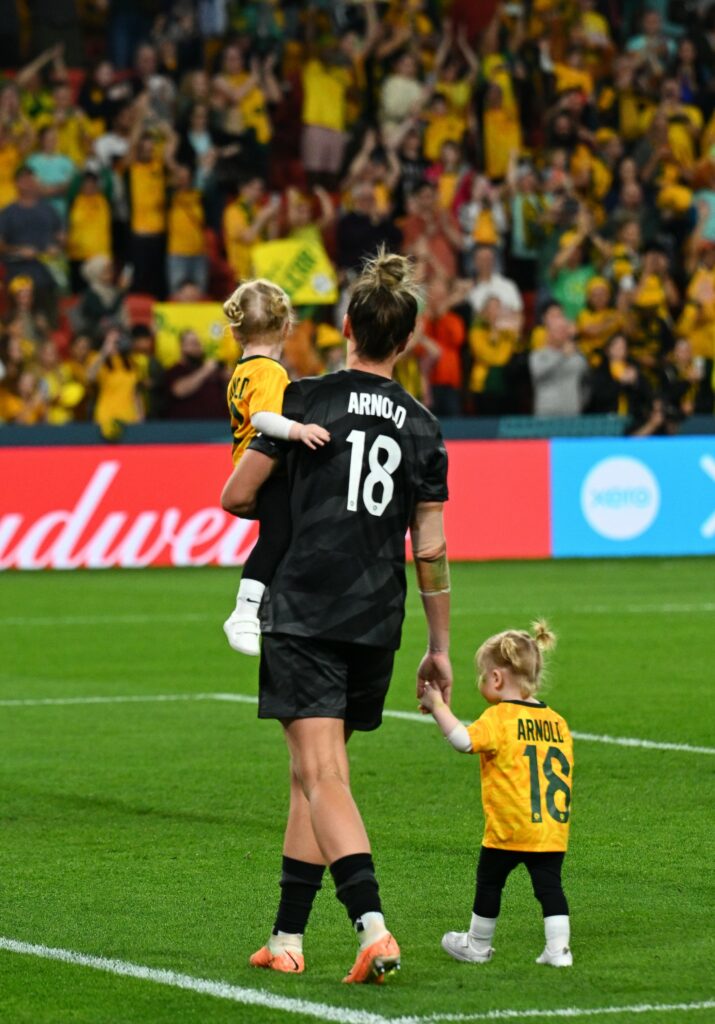
AFTER THE WORLD Cup wound up Arnold only had a few days to spend with her parents on the Gold Coast before flying back to London to train with her club, West Ham United, in the Women’s Super League, which kicks off again in October. She has a couple of Matildas’ qualifying matches towards the end of this year, before the team begins to gear up for its Olympics’ campaign in Paris, beginning next July.
There, expectations will be sky high given what the team just accomplished. For Arnold it will be a chance to make her mark on the tournament, after a disappointing campaign in Tokyo in 2021. “I’ve got a bit of mixed feelings about the Olympics,” she says. “My experience in Tokyo was probably one of the lowest points of my career. I was left out of the team and I wasn’t playing well. I don’t really know an Olympics experience in a positive light as of yet. I just want to stay in my own little bubble, get through this season and play well, and then just take it as it comes.”
The Olympics shapes as an opportunity for the Matildas to build on the momentum of the World Cup. Marketing gurus have labelled the team the most powerful sporting brand in the country, and Arnold is keen to leverage their collective power to inspire the next generation of young girls. “We’re all best friends and we’ve all really grown up together since we were 16, 17 years old,” she says. “I think being an inspiration together, as a group, is really special and I think that it helps us on the field to feel that togetherness. It’s important that we keep going in the direction that we are, but also now, we need to realise how many eyes are on us and how many little kids are looking up to us now.”
Arnold believes the team has been working away for years to become the well-oiled, closely knit unit the country fell in love with. It just took hosting a home World Cup for most Australians to realise what the team was about. “We’re still doing the same thing we’ve always done, it’s just that Australia’s really starting to realise and jump on the bandwagon,” she says. “Now that we have the publicity and the exposure, I think it’s important—and the public are doing it already—to put pressure on the government, the FA, to start really putting some money into our grassroots. I think the public have a lot more impact than they realise that they do.”
And so too, does Arnold, for it’s safe to say, she and her teammates, have our attention. She may not have dreamed about all of this as a kid, but you can be sure there are kids out there now who are.
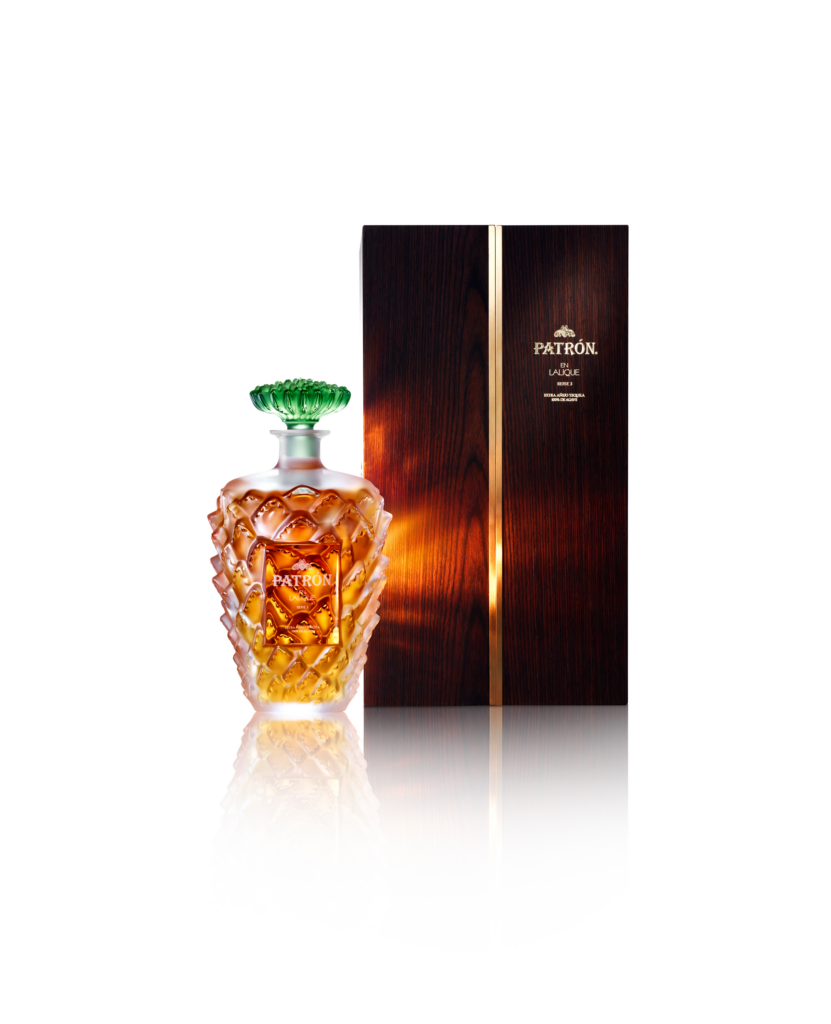
Related:
Why isn’t drug-testing of athletes the same across all sports: an explainer
The Ted Lasso effect: why American celebrities are taking over English football












